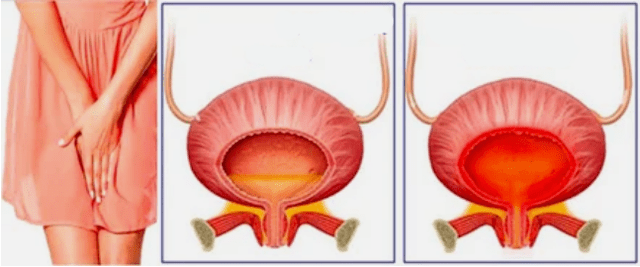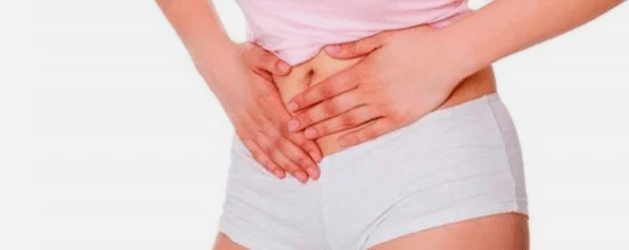Chronic cystitis is a "special" disease that every tenth woman suffers.Often meeting a new exacerbation after 1-2 weeks.After the course of antibiotics.
What is the problem and how to overcome the disease?To get a clear answer to these questions, you should understand what chronic cystitis is caused and what happens in the bladder.
Chronic cystitis - The truth lies in the cause of inflammation

Chronic cystitis is a collective concept, which is only a consequence of a series of diseases.At the same time, the inflammatory process develops for more than 2 months and affects not only the mucous membrane of the bladder (as for acute inflammation), but also the deep layers.
It is useless to treat the disease exclusively with antibiotics, such as acute inflammation.To relieve pain - just to deceive yourself, accepting temporary relief.In the meantime, the disease will continue to progress and sooner or later the pain "refuses" life.We offer a rational approach to understanding the disease.
In a chronic inflammatory process, the pathogenic microflora is quickly developing in the bladder.It can be not only bacteria, but also mushrooms, protozoa and viruses.Therefore, the intake of antibiotics is not always justified.
Important!The treatment of chronic cystitis with drugs of the antibiotic group is recommended only if urine is detected in the analysis of sensitive microorganisms.
A chronic cystitis patient always has a pathology that supports inflammation:
- The leukoplakia of the neck of the bladder (not true!) Or of the vaginal metaplasia - the chronic cervical cystitis causes a benign degeneration of the mucous membrane, which is the result of different acute attacks of cystitis or sexual infection, including hidden (ureaplasmosis, clamidia, etc.);
- Diverticola del Vesrica, Polyps, Urolitiasis - an excellent place for the propagation of bacteria and mushrooms;
- Renal inflammation, hydronephrosis, kidney disease - infection from the kidneys with urine constantly enters the bladder;
- The profound arrangement of the urethral opening revealed during the relationship, causes postcoitic cystitis;
- The reduction of local immune protection - occurs during hormonal malfunctions (there is an insufficient synthesis of estrogen during pregnancy, during menopause, with ovarian pathology), genital diseases, diabetes mellitus;
- Chronic foci of the infection (caries, chronic tonsillitis, sinusitis, etc.) - the pathogen spreads with blood.
Important! These diseases are the real cause of chronic cystitis.Therefore, the disease should be considered together with a causal pathology.For example, the correct diagnosis sounds like this: "Polypies of the bubbles. Chronic bacterial cystitis".
The exacerbation of chronic cystitis can be caused:
- small amount of drunk water;
- Intake of spicy foods, alcohol;
- Hypothermia, acute respiratory infections;
- "Serra" effect - wearing dense synthetic linen, tight jeans;
- Non -elementary conformity with personal hygiene.
Symptoms of chronic cystitis in a woman
Chronic cystitis provides less pronounced symptoms than acute inflammation.For the severity of clinical symptoms and the frequency of relapse, the following options are distinguished by the course of the chronic cystitis:
- Stably latent: the absence of complaints and laboratory changes in the urine, the diagnosis is confirmed only with an endoscopic examination;
- Latent with rare recurrence: an acute picture of cystitis does not occur more than 1 time a year;
- Latent with frequent recurrence: exacerbations 2 or several times in a year;
- Slow current inflammation, which is confirmed laboratory and endoscopically;
- Interstitial symptoms - pronounced, persistent pain syndrome.
Important!Chronic chronic pelvic pain cystitis should be distinguished.In the last pathology in most cases, there are no changes in the analysis of the urine, there is no endoscopic confirmation of inflammation.
The changes in the walls of the bladder vary from catarar, ulcerative and necrotic.
Symptomatic image of chronic cystitis:
- Pain is an almost constant painful pain in the lower abdomen (above pubis), growing when filling the bladder and with a painful hard periodic.Pain during urination - before, after, but more often at the end of the emptying of the bladder.
- Frequently thickness - In reviews of the treatment of chronic cystitis, women notice that frequent impulses do not allow you to take a bath for a long time, ends with the release of a small amount of urine and a sense of incomplete emptying.There is often Niccuria (Bathroom Campaigns at night) and a stressful urinary incontinence.
- Changes in the urine - With the ulcerative lesion and the beginning of the necrotic process, the blood appears in the urine.
Important!Unlike urethritis, pain in chronic cystitis is not always associated with urination.
If the symptoms of chronic cystitis in women after treatment worsened (after 1-2 weeks), inflammation is triggered by the activation of a type of microorganism.The impact, which was born a few weeks after the therapy, indicates a repeated infection with another type of pathogen.Together with the signs of chronic cystitis, women also notice the symptoms of the underlying disease: the exhaust from the vagina with gynecological pathology, back pain or colic pathology during the renal pathology.
Important!Urine analysis in chronic cystitis does not always reveal signs of inflammation and detects pathogen.The only guaranteed study to confirm the diagnosis is cystoscopy.Sometimes urography is required.
How to correctly treat chronic cystitis?

Most women who suffer from chronic cystitis have tried all antibiotics and homeopathic remedies know which therapeutic injection in the bladder and Ionoforese is.And why then, does it seem that a complex treatment correctly prescribed does not help?The answer is simple: the cause of inflammation is not eliminated.Effective treatment for chronic cystitis is performed in the following areas:
- Elimination of causal pathology
Depending on the diagnosis, the urethra (plastic) is performed with an abnormal arrangement of the urethra, the laser ablation of leukoplakia and polyps, etc.Almost all operations are performed through the urethra, they do not leave scars on the skin.The patient performs spinal or intravenous anesthesia.
Trans urethral operations (for example, the removal of stones) are often performed during cystoscopy.Reviews of women on chronic cystitis treatment often indicate the pain of the endoscopic examination.Cystoscopy must be performed with anesthesia so that the patient does not feel pain.After the transureter operations, a woman is in the hospital for only 1 day, the second day can go to work.
- The fight against infection
Depending on the type of pathogen detected, patients are prescribed a course of antibiotics, antiviral or antifungal agents.With bacterial cystitis, drugs are prescribed with bactericidal action (non-bacteriostatic!) With a 7-10 days course.
- Treatment of chronic cystitis symptoms in women
Very often, fans are used for rapid leveling of pain syndrome.After 2-3 weeks.Fanss course, the effect persists up to 3 months. At the same time, antihistamines are prescribed.
- Immune stimulation
At the same time, simultaneously to antibiotic therapy, the use of immunostimulants can replace preventive courses in the next 6 months.
- Elimination of tissue hypoxia
To improve the nutrition of the mucosa with bubbles and prevent the formation of adhesions, the anti -Agents are prescribed.
The preparations that restore microcirculation and have an immunostimulating effect are also widely used for prostatitis in men and are prescribed for chronic cystitis in women.
- Prevention of the substitute for epithelium
Recently, hormonal drugs have been actively used for this purpose.Estrogen and progesterone accelerate the development of the protective layer on the bubble mucosa.The drug Odivin widely used is produced in tablets and candles.
- Local therapy
For the local exposure to the inflammatory process, they resort to installations (injections) in the bladder of dioxidin, heparin, colloidal silver solution (combat of bacteria, viruses, simpler and mushrooms).However, this treatment is used only for extreme cases to exclude the infection.
- Physiotherapy
Physiotherapy - pharmacological electrophoresis, ultrasound, laser treatment, electrical stimulation, magnetotherapy - prevent further replacement of the epithelium of the bladder and have a reabsorption effect.Pharmacological treatment is actively integrated with physiotherapy exercises to normalize blood circulation and strengthen the pelvic muscles.
- Treatment with popular remedies
It is possible to treat chronic cystitis at home with bathrooms and decoctions of medicinal herbs only with the approval of the attending physician!Most of them have a diuretic and antiseptic effect.In addition, the stomach activates the regeneration of the fabrics, the Bardini fighting with a fungal infection, the chamomile and the ivy eliminate muscle spasm (exploits pain), the echinacea has an antiviral effect.Treatment with medicinal herbs lasts at least a month, the best effect is obtained with a combination of different herbs.
Important!In chronic cystitis, it is necessary to consume enough water, exclude sharp and salted dishes, smoked meats and foods containing preservatives and chemical dyes from the diet.
What is the forecast?
The duration of the treatment and the prognosis of the disease depends on the degree of damage to the epithelium of the bladder, the nature of the concomitant pathology and the state of immunity.To prevent relapse, doctors advise to join the following recommendations:
- 10 days.Drink herbal decoction;
- The next 10 days are antibiotics;
- another 10 days.A decoction of other medicinal grass.
A similar scheme used for 3-6 months.After the main course of treatment, it practically eliminates the exacerbation of chronic cystitis.
The most unfavorable forecast for the formation of scars in the bladder and urethra.In such cases, a surgical excision of the outbreaks of connective tissue is required.
It should also be remembered that a chaotic drug without prescription can eliminate acute symptoms, but it will not restore the mucous membrane of the bladder and does not alleviate causal disease.Only a doctor, with a clear idea of the cause of the disease, will individually prescribe an effective treatment scheme and help to get rid of the exhausting symptoms of chronic cystitis!

























